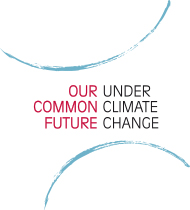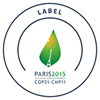In spite of political progress made in favor of sustainable development, efforts devoted to combating global warming (to slow down its effects) and to developing adaptations (to lessen the consequences) are still insufficient. In the light of this, the Drylands TTS initiative, led by four institutions (Center for Management and Strategic Studies-CGEE and National Scientific and Technological Development Council � CNPq/Brazil; Institut de recherche pour le d�veloppement � IRD/France; and Pan-African Agency of the Great Green Wall � APGMV/Africa Sahel), worked between the years 2010 and 2012 in order to structure a scientific program and fund focused on impacts of climate change in the African Sahel drylands.
During the United Nations Conference on Sustainable Development 2012 (UNCSD) the initiative launched the Tripartite Agreement focused on the African drylands. The call to the TTS edict released in June 2012 explored support and financing to scientific projects driven to the Sahelien region. The initiative also laid the foundations for a scientific community between Brazil, France and the countries of the Sahelian region. The central idea was to foster the development via cooperation activities in joint projects of science, technology and innovation (ST&I;), contributing directly to the generation and dissemination of knowledge and increasing the technological capacity of the African countries involved. Support for scientific research projects considered the issues related to the process of desertification of arid and semi-arid areas, with priority given to the Sahelian region, focused on the following areas : 1. agriculture and food; 2. management of natural resources (water, soil, biodiversity); 3. adaptation to climate change; 4. sustainable and human development; 5. governance, technology and innovation.
To meet the challenges of sustainable development and build the future we want, highlighted by the Rio + 20, the global community need to take into account the construction of new templates of cooperation at global scale. New templates need to be supported by a strong and innovative multilateralism, committed with the exchange and cooperation of science, technology and innovation.



